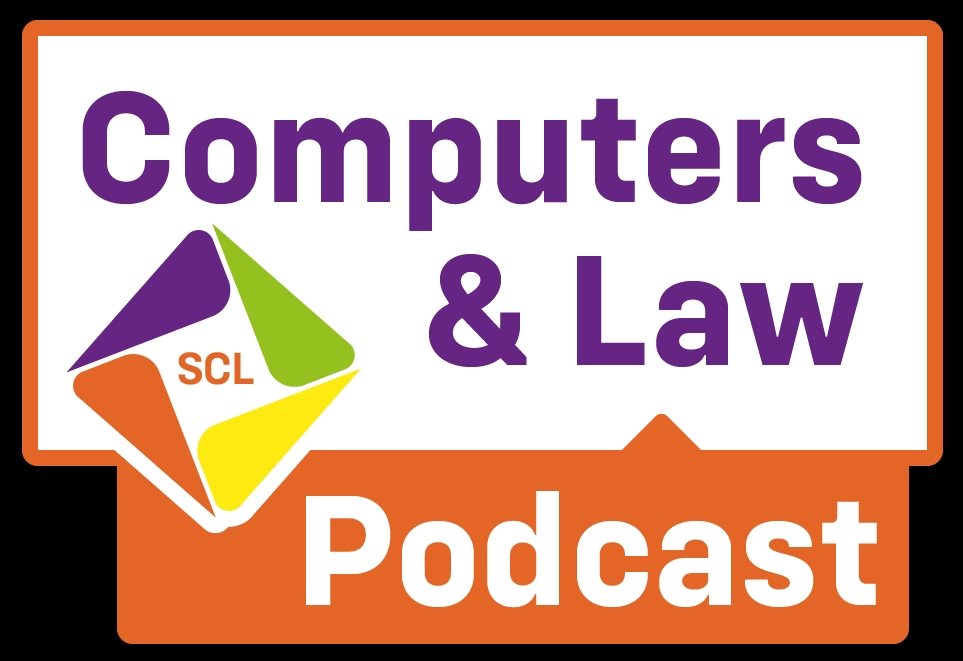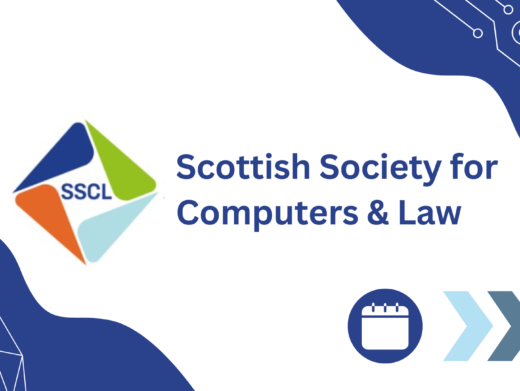SCL has recently launched a new season of podcasts surveying Technology and Privacy Law Around the World, hosted by Mauricio Figueroa. The first one in the season looks at idea of Robot Judges and Mauricio spoke after recording with one of the panel, Tomás McInerney, to find out more about his experience in being part of the project and his work in the area.
What got you involved with AI and judicial decision-making?
Understanding how emerging technologies challenge and redefine many traditionally human decision-making processes is an increasingly important question. There is certainly a concern amongst some that we have given away too much to new AI systems in general, especially when those systems that are largely controlled and disseminated by major technology companies. The bearing that these developments have on the fundamentally human activity of judging disputes in the court is therefore fertile ground for analysis. Deploying AI in possibly the most crucial decision-making context of all – the judicial role – raises fundamental questions regarding the emotional and cathartic elements of delivering justice, respect for the delivery of individualised justice in many cases, and the absence of arbitrariness in decision-making. These questions make us consider the role of the judge in an age where efficiency, cost-saving, and access to justice are increasingly pertinent. There is a certainly a role for AI in the courts, and perhaps in some ‘low-level’ decision-making contexts, but understanding in where and why AI may be appropriate here needs to be answered first.
How did you feel about participating and as a listener, what themes would you like to hear more on?
It was really enjoyable: a great opportunity to explore complex ideas in an accessible format, and it is always rewarding to think about how these discussions might resonate with listeners and a wider audience. The process also gave me a chance to reflect on how to frame key debates in law and technology in ways that inspire curiosity and encourage deeper engagement.
As a listener, I would be particularly interested in themes that critically examine the global impacts of digital technologies, and particularly Generative AI, on law. Exploring how different jurisdictions are grappling with interdisciplinary challenges like data bias, data privacy, and AI benchmarking would provide some great insights. For example, comparing regulatory approaches in the EU, the US, and emerging frameworks in the Global South could highlight how cultural, legal, and political contexts shape responses to technological change.
Ultimately, topics that unpack the human dimension of digital technologies, whether in terms of access to justice, fairness, or legal certainty, would be particularly compelling. These are the kinds of conversations that could stimulate a richer discussion for academics, legal practitioners, and a wider audience.
Where can we learn more about learn more about the projects you mentioned in the podcasts?
A good starting point, in the near future, will be the monograph I am working on, which builds on my doctoral research. It examines the limits of AI in judicial decision-making, focusing on what it is about the human act of judging that cannot – and perhaps should never – be replicated by machines. This expands on several of the ideas I touched on during the podcast.
For now, I’d recommend a recent co-authored chapter of mine, available as a preprint, which addresses similar themes. For those interested in further reading, Morison and Harkens’ 2019 paper provides an excellent foundation for understanding many of the issues raised during our discussion. Additionally, Deakin and Markou’s edited collection, Is Law Computable?, is a valuable resource that brings together diverse perspectives at the intersection of AI and law.
I also have a chapter forthcoming in an edited collection on Epistemic Injustice, titled The Algorithmic Construction of Epistemic Injustice. This explores the processes of constructing Large Language Models, unpacking the problematic practices and assumptions that often embed injustice into these systems and perpetuate it in their downstream applications.
Tomás McInerney was in conversation with Mauricio Figueroa. Find out more about them, and to listen to the podcast, visit podcasts.scl.org.
About the podcast
Over the next few months, Mauricio will host a unique series of conversations on tech law from across the globe with scholars and practitioners from different jurisdictions and expert fields.
The next episode in the series, looking at developments in India will be released on 20th January and touches on the thought-provoking issues of data protection, freedom of expression and algorithmic discrimination, with insights from local experts, with experience in legal practice, academia and technology policy.
Where to listen





